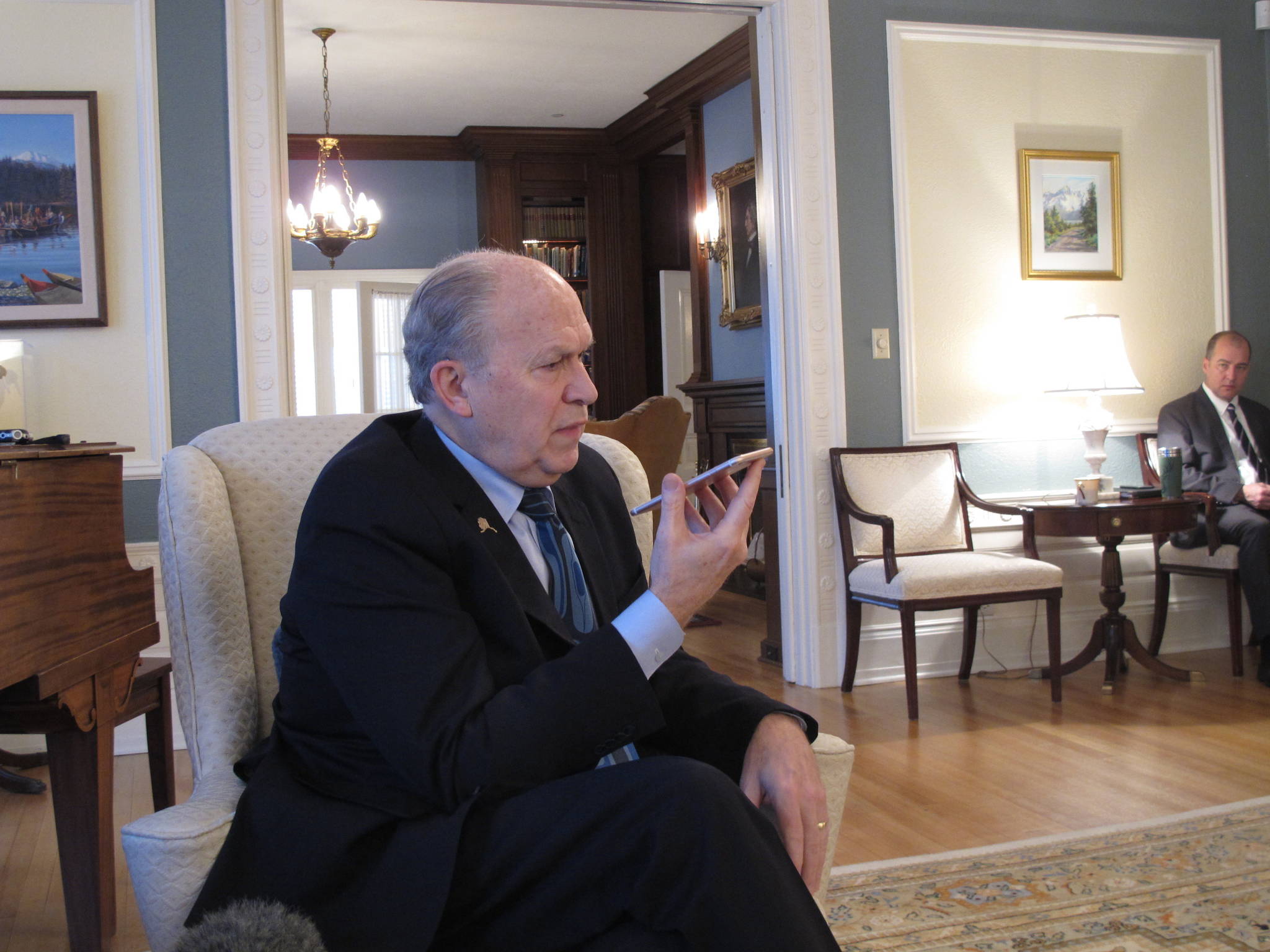JUNEAU — The joke has always been that Alaska is so wealthy, it pays its residents to live here. But those yearly checks have gotten smaller, and could undergo a massive change, as Alaska struggles to pay state troopers and fix roads amid years of low oil prices.
After oil started flowing from Alaska’s North Slope in the late 1970s, so did the checks, which eventually were paid with earnings from an oil-wealth fund that’s grown to about $65 billion through investments. Times were so good, the state in 1980 repealed its personal income tax, a decision that has been politically impossible to undo as the state grapples with a multibillion-dollar budget deficit.
Now, with their options for filling the deficit dwindling, lawmakers may have no choice but to use Alaska Permanent Fund earnings to help pay the state’s bills. Over the years, the size of residents’ annual checks has varied based on the market’s performance, averaging about $1,145. They reached an all-time high of $2,072 in 2015 — totaling more than an extra $10,000 for a family of five — before state leaders started contemplating some use of fund earnings for government costs and Gov. Bill Walker limited the payout.
The prospect isn’t sitting well with some.
“I’m not willing to give them anything,” said Clem Tillion, a former state lawmaker and longtime fund defender who with others unsuccessfully sued over Walker’s halving of dividend checks in 2016.
Alaska received more than 156,000 square miles of land as a “dowry” at statehood, with mineral rights belonging to the people, Tillion said. The checks are their share, he said.
Major proposals for using the fund’s earnings involve changing how the checks are calculated, fueling a political debate expected to spill into this year’s gubernatorial and legislative races.
The choices are limited: With oil revenue unable to sustain the state budget, savings accounts drawn low, Republicans seeing new or higher taxes as unnecessary, and Democrats against deeper budget cuts, what’s left are the earnings from the state’s nest-egg.
Fund earnings, by one estimate, could total around $16 billion by the end of this fiscal year, though lawmakers are eyeing only a fraction of that. The Legislature is scheduled to end its session in mid-April but has run long in recent years.
The checks are widely seen as an entitlement — discretionary money for many Alaskans but critical income for others, particularly lower-income residents living in high-cost rural communities where a gallon of milk can cost about $10.
The decision, first by Walker, then by lawmakers, to not follow the formula in law for dividend calculations the past two years has fueled anger and distrust among some Alaskans who fear a money grab, even as state leaders say they’re motivated by a desire to protect a dividend into the future.
“I don’t believe them,” said Jeff Taylor, a single dad in the tiny town of Anderson, about 75 miles southwest of Fairbanks.
Life in Alaska is tough, said Taylor, whose home is intentionally small to reduce heating costs. He sees the slashed checks as taking money from children, including his 5-year-old son.
Taylor blames Walker, an independent who cut dividends in 2016 to $1,022. Lawmakers agreed to a similarly reduced amount last year.
“Right now, I’d rather have him just sit on his hands and don’t touch nothing until the next election is over,” Taylor said.
Walker, who has unsuccessfully pushed tax proposals to help fill the deficit, stands by his actions. He and legislative leaders have favored turning the permanent fund into an endowment, where a portion of earnings would be drawn based on an average of the fund’s market value.
Under existing proposals, which vary in their draw rates, the split that could go to state government ranges from about two-thirds to three-fourths, with the rest to residents. The yearly checks initially would range from about $1,000 to $1,250.
The House majority, composed largely of Democrats, and the Republican-led Senate are divided over what more should be done before permanently altering the dividend. A deeply split House voted Monday to fund the checks using the existing formula this year. Some Democrats, burned by Republicans’ refusal to act on a broader fiscal plan that includes taxes, saw the move as only fair, while other Democrats and some Republicans called it fiscally reckless.
With higher oil prices and improved production estimates from the prodigious North Slope, there is no need to discuss taxes now, said Senate President Pete Kelly, a Fairbanks Republican.
State Revenue Commissioner Sheldon Fisher noted even with a rosier price outlook, Alaska faces a deficit of about $2.3 billion.
The permanent fund’s principal is protected in the state constitution; the checks aren’t. House leaders have flirted with the idea of changing that, though legislative legal adviser Doug Gardner said constitutionally guaranteeing a specific amount could improperly infringe upon legislative appropriation and gubernatorial veto powers. Any proposed constitutional change would need two-thirds backing in the House and Senate before going to voters.
While many Alaskans support protecting the annual checks, they have urged a more equal split between their share and the government’s.
Don Fritz said he’s a longtime Alaska resident and in between jobs, though he said his wife says he’s retired. He said the dividend doesn’t belong in the constitution. At best, he said it should compete with other programs for funding.
“To me, it’s one of many things that need to be prioritized,” such as public safety and education, he said.

